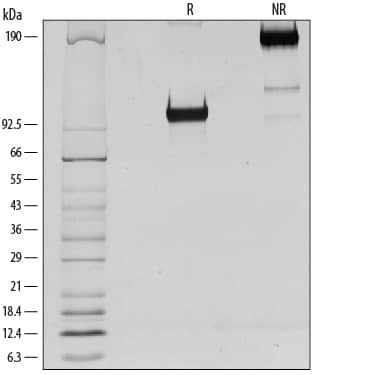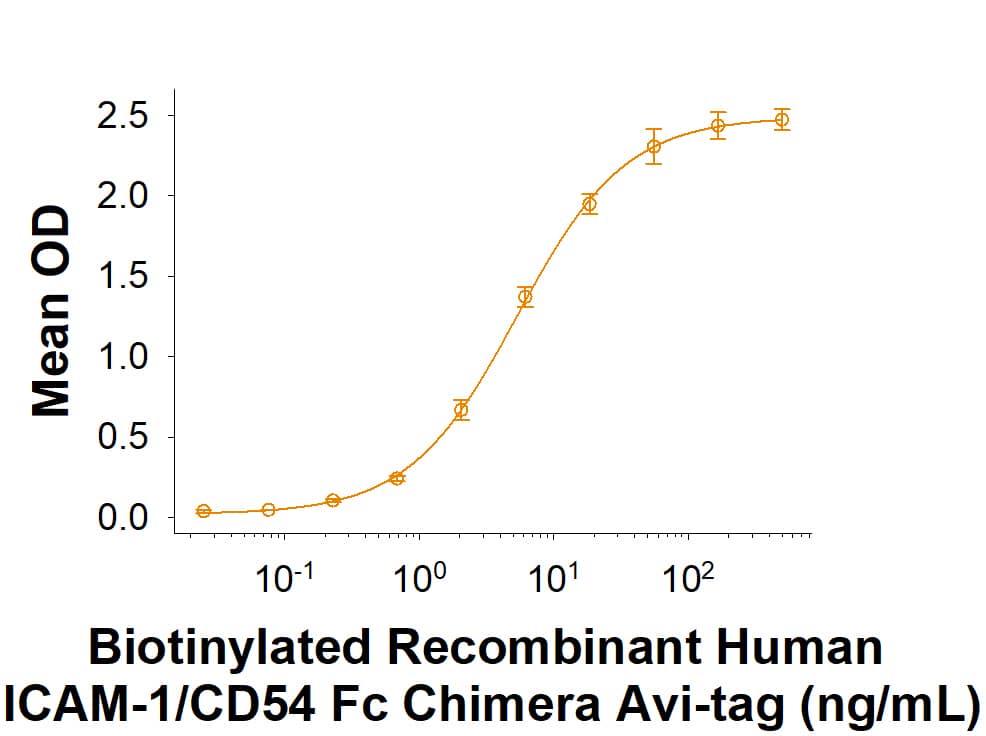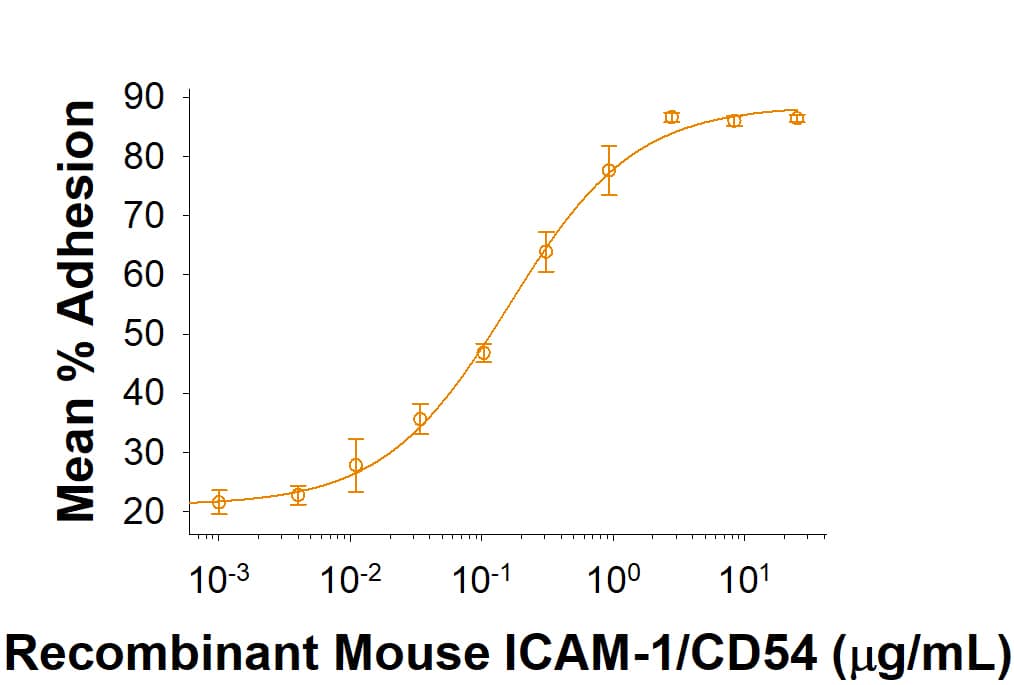ICAM-1/CD54: Proteins and Enzymes
ICAM-1 (intercellular adhesion molecule-1), also known as CD54, is a transmembrane protein that is upregulated on endothelial and epithelial cells at sites of inflammation. It mediates the vascular adhesion and paracellular migration of leukocytes expressing activated LFA-1 (CD11a/CD18) and Mac-1 (CD11b/CD18). It also binds several non-integrin ligands including CD43/Sialophorin, Fibrinogen, Hyaluronan, rhinoviruses, and Plasmodium falciparum-infected erythrocytes. Soluble ICAM-1 promotes angiogenesis and serves an indicator of vascular endothelial cell activation or damage. Elevated levels of soluble ICAM-1 are associated with cardiovascular disease, type 2 diabetes, organ transplant dysfunction, oxidant stress, increased abdominal fat mass, hypertension, liver disease, certain malignancies, and cerebral malaria.
8 results for "ICAM-1/CD54 Proteins and Enzymes" in Products
8 results for "ICAM-1/CD54 Proteins and Enzymes" in Products
ICAM-1/CD54: Proteins and Enzymes
ICAM-1 (intercellular adhesion molecule-1), also known as CD54, is a transmembrane protein that is upregulated on endothelial and epithelial cells at sites of inflammation. It mediates the vascular adhesion and paracellular migration of leukocytes expressing activated LFA-1 (CD11a/CD18) and Mac-1 (CD11b/CD18). It also binds several non-integrin ligands including CD43/Sialophorin, Fibrinogen, Hyaluronan, rhinoviruses, and Plasmodium falciparum-infected erythrocytes. Soluble ICAM-1 promotes angiogenesis and serves an indicator of vascular endothelial cell activation or damage. Elevated levels of soluble ICAM-1 are associated with cardiovascular disease, type 2 diabetes, organ transplant dysfunction, oxidant stress, increased abdominal fat mass, hypertension, liver disease, certain malignancies, and cerebral malaria.
| Source: | NS0 |
| Accession #: | CAA30051 |
| Applications: | BA |
| Source: | NS0 |
| Accession #: | Q3U8M7 |
| Applications: | BA |
| Source: | NS0 |
| Accession #: | CAA30051 |
| Applications: | BA |
Biotinylated
| Source: | HEK293 |
| Accession #: | P05362 |
| Applications: | BA, BA |
| Source: | NS0 |
| Accession #: | P13597.1 |
| Applications: | BA |
| Source: | NS0 |
| Accession #: | Q00238 |
| Applications: | BA |
| Applications: | AC |
| Applications: | AC |





